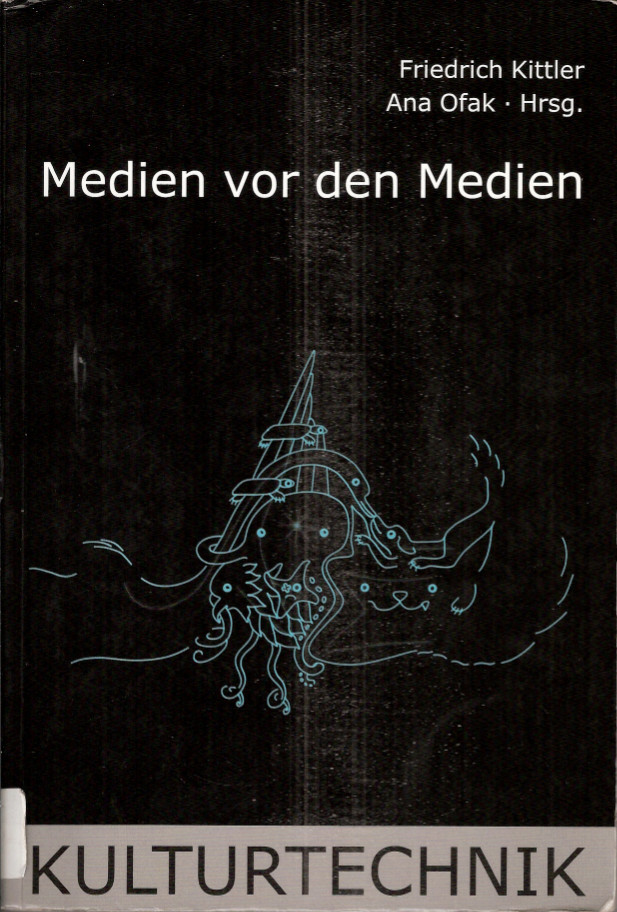Barbara Cassin (ed.): Dictionary of Untranslatables: A Philosophical Lexicon (2004–) [FR, EN]
Filed under book | Tags: · aesthetics, history of philosophy, humanities, knowledge, language, linguistics, literary theory, literature, logic, philosophy, political theory, translation

“This is an encyclopedic dictionary of close to 400 important philosophical, literary, and political terms and concepts that defy easy–or any–translation from one language and culture to another. Drawn from more than a dozen languages, terms such as Dasein (German), pravda (Russian), saudade (Portuguese), and stato (Italian) are thoroughly examined in all their cross-linguistic and cross-cultural complexities. Spanning the classical, medieval, early modern, modern, and contemporary periods, these are terms that influence thinking across the humanities. The entries, written by more than 150 distinguished scholars, describe the origins and meanings of each term, the history and context of its usage, its translations into other languages, and its use in notable texts. The dictionary also includes essays on the special characteristics of particular languages–English, French, German, Greek, Italian, Portuguese, Russian, and Spanish.
Originally published in French, this one-of-a-kind reference work is now available in English for the first time, with new contributions from Judith Butler, Daniel Heller-Roazen, Ben Kafka, Kevin McLaughlin, Kenneth Reinhard, Stella Sandford, Gayatri Chakravorty Spivak, Jane Tylus, Anthony Vidler, Susan Wolfson, Robert J. C. Young, and many more.The result is an invaluable reference for students, scholars, and general readers interested in the multilingual lives of some of our most influential words and ideas.”
The book has been or is in the process of being translated into Arabic, Chinese, Farsi, Portuguese (5 Vols, scheduled 2009-11), Romanian (scheduled 2013), Russian, Spanish, and Ukrainian (3 Vols, 2009-13, (2), (3)).
First published in French as Vocabulaire européen des philosophies: Dictionnaire des intraduisibles, Seuil/Le Robert, Paris, 2004.
English edition
Translated by Steven Rendall, Christian Hubert, Jeffrey Mehlman, Nathanael Stein, and Michael Syrotinski
Translation edited by Emily Apter, Jacques Lezra and Michael Wood
Publisher Princeton University Press, 2014
Translation/Transnation series
ISBN 0691138702, 9780691138701
1344 pages
Untranslatables and their Translations (Barbara Cassin, Transeuropéennes, 2009, in French, English, Arabic and Turkish)
Commentary (Jacques Lezra, video, 12 min, 2014, in English)
Wikipedia (FR)
Project website (archived)
Publisher (FR)
Publisher (EN)
Vocabulaire européen des philosophies – Échantillon IMAGE (French, HTML version of 30 entries related to the notion of image)
Dictionary of Untranslatables (English, EPUB, PDF)
Walter Benjamin: Selected Writings, Volume 1: 1913–1926 (1996)
Filed under book | Tags: · aesthetics, language, literary criticism, literature, philosophy, translation, weimar republic, writing

“Walter Benjamin emerged from the head-on collision of an idealistic youth movement and the First World War, which Benjamin and his close friends thought immoral. He walked away from the wreck scarred yet determined “to be considered as the principal critic of German literature.” But the scene, as he found it, was dominated by “talented fakes,” so—to use his words—“only a terrorist campaign would I suffice” to effect radical change. This book offers the record of the first phase of that campaign, culminating with “One Way Street,” one of the most significant products of the German avant-garde of the Twenties. Against conformism, homogeneity, and gentrification of all life into a new world order, Benjamin made the word his sword.
Volume I of the Selected Writings brings together essays long and short, academic treatises, reviews, fragments, and privately circulated pronouncements. Fully five-sixths of this material has never before been translated into English. The contents begin in 1913, when Benjamin, as an undergraduate in imperial Germany, was president of a radical youth group, and take us through 1926, when he had already begun, with his explorations of the world of mass culture, to emerge as a critical voice in Weimar Germany’s most influential journals.
The volume includes a number of his most important works, including “Two Poems by Friedrich Hölderlin,” “Goethe’s Elective Affinities,” “The Concept of Criticism in German Romanticism,” “The Task of the Translator,” and “One Way Street.” He is as compelling and insightful when musing on riddles or children’s books as he is when dealing with weightier issues such as the philosophy of language, symbolic logic, or epistemology. We meet Benjamin the youthful idealist, the sober moralist, the political theorist, the experimentalist, the translator, and, above all, the virtual king of criticism, with his magisterial exposition of the basic problems of aesthetics.
Benjamin’s sentences provoke us to return to them again and again, luring us as though with the promise of some final revelation that is always being postponed. He is by turns fierce and tender, melancholy and ebullient; he is at once classically rooted, even archaic, in his explorations of the human psyche and the world of things, and strikingly progressive in his attitude toward society and what he likes to call the organs of the collective (its architectures, fashions, signboards). Throughout, he displays a far-sighted urgency, judging the present on the basis of possible futures. And he is gifted with a keen sense of humor. Mysterious though he may sometimes be (his Latvian love, Asia Lacis, once described him as a visitor from another planet), Benjamin remains perhaps the most consistently surprising and challenging of critical writers.”
Some parts first appeared in Gesammelte Schriften, Band I, Suhrkamp, Frankfurt, 1972
Edited by Marcus Bullock and Michael W. Jennings
Publisher Belknap Press, 1996
ISBN 0674945859, 9780674945852
528 pages
via Scribd.com
Review (J.M. Coetzee, The New York Review of Books)
Review (Eli Friedlander, boundary 2)
PDF (no OCR)
Comments (2)Friedrich Kittler, Ana Ofak (eds.): Medien vor den Medien (2007) [German]
Filed under book | Tags: · architecture, cultural techniques, image, literature, media, media theory, mediality, music, music history, philosophy, sound, time

“Das Dazwischen (to metaxy) macht das Sehen und Hören, die Erkenntnis und die Liebe erst möglich – das überliefern uns Texte der Antike. Die Medien prägen so unser Wissen und verstören unsere Sinne seit jeher. In der deutschen Medienwissenschaft ist es fast zur Selbstverständlichkeit geworden, nur heutige oder doch neuzeitliche Medien zu erforschen. Nun geht aber schon der Begriff “Medium” auf die griechische Antike zurück. Eben diesem Sachverhalt sucht der Band Medien vor den Medien gerecht zu werden. Vom Feuertelegraphen zur Ontologie, vom Marienglas zur sakralen Lichtarchitektur und immer wieder vom Ton zum Bild. Da die Medien der Antike zunächst zur Sprache kommen, wird es möglich, Brücken zu anderen Wissenschaftskulturen und in jene Neuzeit zu schlagen, die unseren kurrenten Begriff physikalischer und technischer Medien prägt. Das Buch richtet sich an Philosophen, Kunst-, Kultur- und Medienwissenschaftler.”
Publisher Fink, Munich, 2007
Kulturtechnik series
ISBN 3770542843, 9783770542840
282 pages
via adorno77
Cultural techniques at Monoskop wiki
PDF (53 MB, no OCR, updated on 2020-4-20)
Comment (0)
